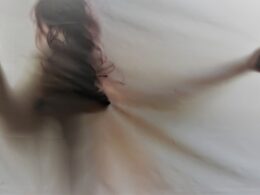Many people have heard that it’s important to pee after sex. However, not everyone knows why.
During orgasm, the parasympathetic nervous system releases vasocongestion. This causes the blood vessels in the genital area to dilate. This makes it hard to pee.
For women, peeing after sex can help prevent UTIs by flushing bacteria from the urethra. It doesn’t, however, prevent STDs as bacteria travel through different holes.
The Urinary Tract
During orgasm, your body releases a hormone called vasopressin that makes it harder for you to pee. It also reduces the amount of water in your urine and raises your blood pressure. It’s important to pee before and after sexual activity, especially if you orgasm often. Otherwise, you could get a urinary tract infection (UTI).
Your bladder holds your urine until you’re ready to empty it (pee). It then drains into the urethra. The urethra is a tube that carries urine from your bladder to the outside of the body in either your penis (in men) or in front of your vagina (in women).
UTIs can be caused by bacteria in your urine. It’s more common for men than women to get them because the prostate gland — a small muscle-like tissue that surrounds the urethra — can get infected and cause a burning sensation while peeing.
Peeing after sex helps flush the prostate of bacteria, which can reduce your risk of a UTI. But it won’t prevent you from getting an STI if you don’t use a barrier like a condom during unprotected sex. That’s because sperm gets deposited in the vaginal canal and then swims/rolls towards the uterus, where an egg would be. Men don’t have to worry about this because their urethra is the same tube that ejaculates out of, so any bacteria present at the meatus during ejaculation is easily flushed away.
The Bladder
The bladder is a triangular-shaped organ in the lower part of your abdomen that collects and stores urine. It is filled with fluid and has two circular muscles called sphincters, which keep urine from leaking out of the bladder. The sphincters are activated by sensory nerves from the central nervous system.
The urethra, which is a tube that connects the bladder to the outside world, is located right next to the bladder. This means that the penis or dildo pushing against it during orgasm can cause a reversal of the normal flow of urine in the bladder, and you may feel the urge to pee.
This is especially true for women, whose vagina is closer to the urethra than men’s penises are to their rectums. Several studies have shown that peeing as soon as possible after sexual activity helps to flush bacteria that could enter the urethra and cause an infection.
A sudden urge to pee can also indicate a urinary tract infection (UTI). It is important to see a doctor as soon as you notice any pain or burning when you urinate, or blood in your urine. The doctor will likely prescribe antibiotics to help treat the infection and prevent it from spreading. In addition, people who are at risk for an infection should practice healthy bathroom habits by taking enough time to completely empty the bladder each time they urinate and by wiping the genital area from front to back, particularly after a bowel movement.
The Clitoris
Despite the fact that everyone knows that peeing after sex is a good idea, it’s still common to find yourself stuck on the toilet post-orgasm. This is because when you orgasm, your body releases an antidiuretic hormone that prevents urine from passing. This is because orgasms involve ejaculation, which engorges your clitoris and makes it hard to pass urine.
In an effort to help more people pee after orgasm, the Royal Australian and New Zealand College of Obstetricians and Gynaecologists (RANZCOG) has added a one-hour lecture on female anatomy and sexual function to the curriculum for its fellows. The college admits, however, that the G-spot is not yet widely understood.
Your clitoral hood (that little hill of skin that’s covered by the hood that’s attached to your labia) is only the tip of a much larger organ called the clitoral gland. It stretches all the way back and behind your vaginal walls, connecting to the glans clitoralis (the hood’s “head”) and extending down through the urethra and the pelvic canal.
The clitoral gland has a lot of nerve endings, which makes it feel great to touch. It also has a number of paired crura and vestibular bulbs, which are like its “legs.” When you’re sexually aroused, these structures swell up and can be felt through the clitoral hood.
The Pelvic Floor
Women are often told to practice Kegel exercises, a form of pelvic floor muscle training. It involves squeezing the muscles as if you’re trying to stop the flow of pee and then releasing them. But this can be dangerous for some women because it can weaken the muscles.
Women with weak pelvic floor muscles can suffer from urinary incontinence, stress incontinence and rectal prolapse. They may also find it hard to pee after orgasm and feel a burning sensation when they do. This is because the urethra can become irritated by rough stimulation, such as the penis rubbing against the vagina during sex.
The pelvic floor muscles support the bladder, urethra, bowel (large intestine), rectum and anus. They stretch like a hammock from the pubic bone at the front of the pelvis to the coccyx (tailbone) at the back. They are also the muscles that contract and relax during an orgasm.
These muscles can be tight or loose, and it all depends on the shape they are in. Tina Allen, PT, of the UW Medicine Pelvic Health Center uses a fairy tale analogy to explain how pelvic floor muscles should function: “Like Goldilocks’ porridge, you don’t want it too hot or too cold, but just right.” If your pelvic floor muscles are too tight, you can try performing Kegels or seeing a physical therapist who specialises in treating the pelvic floor.









